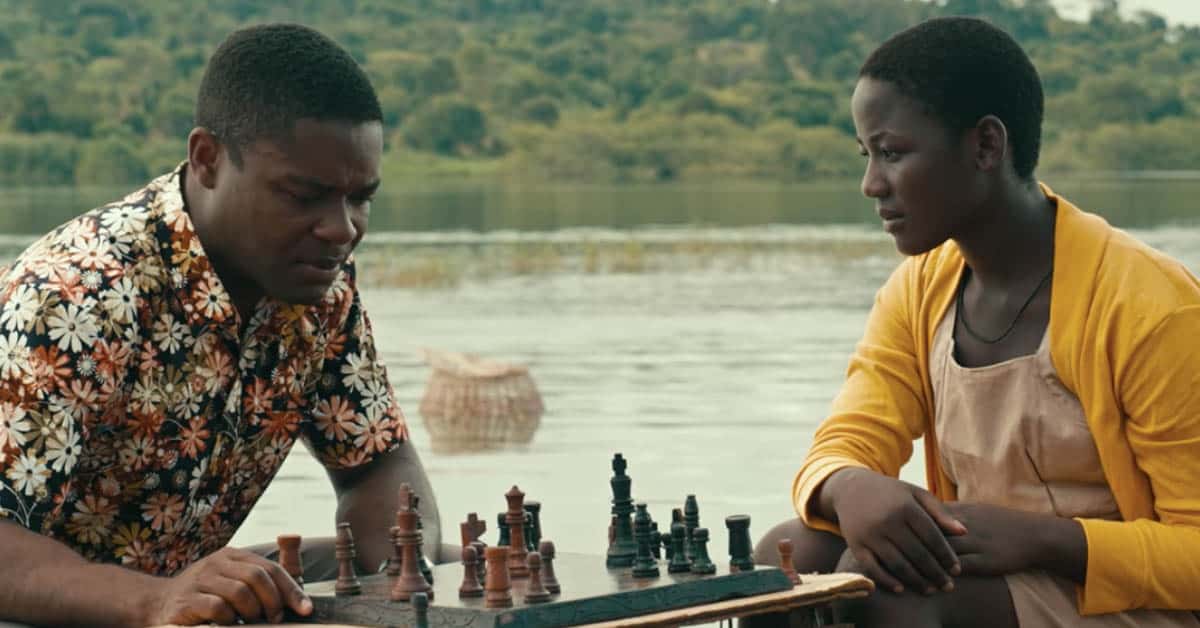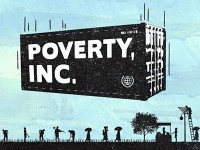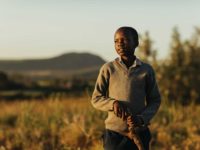Early in Disney’s new movie Queen of Katwe (in theaters Sept. 23, 2016), young Phiona Mutesi (Madina Nalwanga) learns the basics of chess from another girl. The girl holds up a pawn and calls it “little man.” She points to the king and calls it the president. The queen, the girl explains, is the most powerful piece on the board. And if you lose it, it’s gone — unless you somehow move a pawn slowly across the length of the board. The moment the pawn reaches the other end, it can become another piece … even the mighty queen.
“In chess, the small one can become the big one,” she says. “That’s why I like it.”

Courtesy YouTube: Disney Movie Trailers, Queen of Katwe
The scene foreshadows Phiona’s own transformation: From a near-destitute girl in one of Uganda’s poorest communities into a chess prodigy who would bring financial security to her family and pride to Katwe, the region of Ugandan capital city of Kampala from which she came.
But the scene — and the movie as a whole — also illustrates why Compassion International operates in Uganda and 25 other countries around the world: In God’s eyes, we all are kings and queens. We all are filled with possibility, no matter the circumstances we’re born in, no matter the challenges we face. Through God — and with a little help from His earthly servants — the small ones can become big.
Queen of Katwe is based on the true story of Phiona Mutesi, a young woman from one of Uganda’s poorest slums who became a chess sensation. While the movie does not emphasize the real Christian faith of Phiona and her coach, Robert Katende (David Oyelowo), it doesn’t really need to. We see that God is an integral part of both of their lives. They pray. They talk about God. Indeed, it’s Robert’s job with a Christian organization that makes the whole story possible.
While waiting for an engineering job, Robert takes a position with Agape Sanctuary Ministry. They hire Robert, presumably, because he’s a pretty good football (soccer) player — ideal for a sports ministry outreach. But Robert loves chess, too. And soon he starts a club where kids from around Katwe can come in for a little free food and lots of chess.
And even on Katwe’s tough streets, there are class distinctions. Sure, most of the kids in Robert’s chess club are poor, but Phiona and her brother are on a level below even that. At first, the other children call Phiona a “pig” and wrinkle their noses at her odor.
But despite that universal disdain from her peers, Phiona — newly bathed — returns, determined to learn this strange new game. It’s not long before she’s beating her club peers, then she travels to tournaments across Uganda and the whole continent of Africa, besting opponents who have far more advantages, education and knowledge of the game than she has. And along the way, Robert teaches her and her fellow players not just about chess but about life — using the game’s principles as a catalyst for broader, more universal lessons.
“There are too many problems!” Phiona laments to her coach after her family’s been evicted from their home and just finding food is a struggle.
“But chess helps us solve problems, eh?” Robert says.
It’s true: Chess does help Phiona with her problems, sometimes in very tangible ways. She ultimately excels because she has the talent, drive and opportunity to do so. But it’s Robert’s generosity — with his time, his money, even his family — that gives her that opportunity, the catalyst that helps launch Phiona to her God-given potential. Robert never gives up on her, even in dire circumstances.
Queen of Katwe is a moving, inspirational film. You don’t need to be connected to Compassion to feel its resonance. But when I watched the movie, I was struck by how the story dramatically mirrors the stories of many children connected with Compassion International — stories that may not become major Disney movies but which can be just as transformative.
See, I think that Compassion gives us all a chance to be a Robert-like figure to a child. Like Robert, we’re called to give a little of our money. Our time. And through our letters, we even have a chance to give a little bit of our family to these kids — the sort of love and support that only a real, personal connection can provide. We have a chance to be a part of a child’s story. And as Robert would tell you, that’s not so much a duty as it is an honor.
There’s a slogan painted on the back of the dilapidated church bus Robert drives around Katwe: “Challenges are not a curse.” That’s true. Even though Phiona confronts more than her fair share of challenges, those don’t break her. They make her stronger. No person made her the woman and chess champion she became. But by the same token, she couldn’t have done it without a little help.






2 Comments |Add a comment
“In God’s eyes, we all are kings and queens. We all are filled with possibility, no matter the circumstances we’re born in, no matter the challenges we face. Through God — and with a little help from His earthly servants — the small ones can become big.”
This is beautifully written. Thank you for this reminder!
As a chess lover myself, I can very much identify myself with Phiona’s story.
Out of many pawns (8 in total), only one may possibly become the powerful (or the most powerful) one on chess board.
In the world of chess, as well as the real world, only a handful can reach the position of honor and might, but in the realm to come, we are all destined for glory.
The wisdom of the Bible teaches us that “humility comes before honor”, and “the last shall be the first”, or “the least is the greatest”.
A heavenly perspective is a total absurdity in the world which we live and are called to be the salt and light with such a perspective, but we are the incarnation of such a heavenly perspective that we must live out our conviction.
Just with a little pawn, so with us that the way to the glory runs through the way of humility.